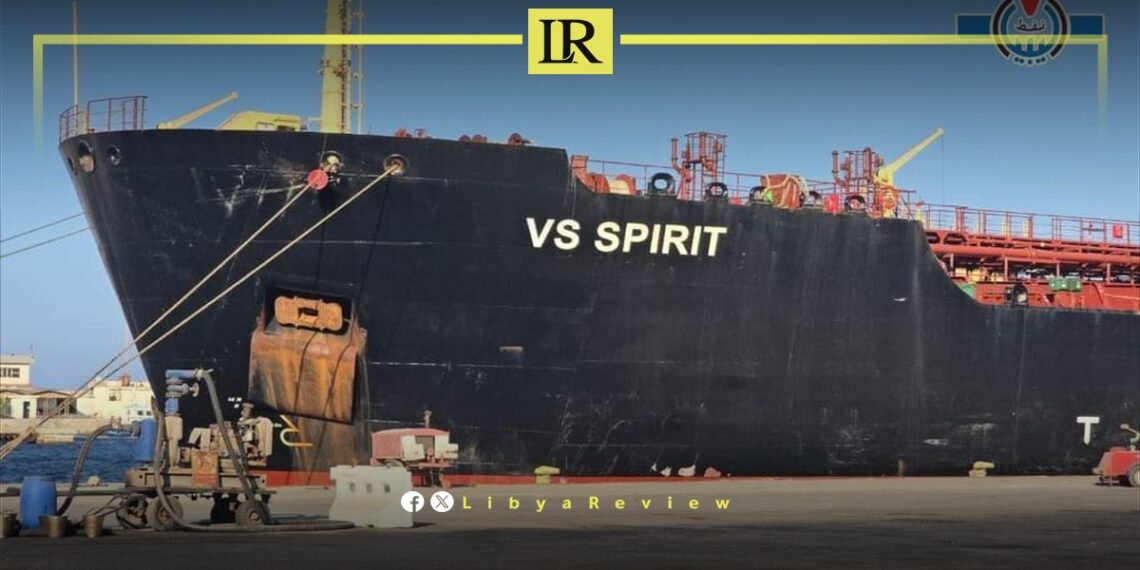On Saturday, the Port of Tripoli in Libya received a significant boost with the arrival of the tanker “VS Spirit,” carrying over 30 million liters of gasoline.
This delivery comes at a crucial time as Libya grapples with widespread fuel shortages, exacerbated by the recent declaration of force majeure and the suspension of operations at the Hariga Oil Port.
Brega Petroleum Marketing Company announced that the gasoline from this shipment will be promptly distributed to fuel stations across the capital and other key cities. The company assured the public that the congestion at fuel stations, which has severely impacted daily life, should ease within hours as the new supply reaches the pumps.
The arrival of this tanker is particularly timely given the ongoing disruptions in Libya’s oil export sector. Just recently, the National Oil Corporation (NOC) declared force majeure at the Hariga Oil Port, effectively halting oil exports from one of the country’s key terminals. This decision has compounded the fuel supply issues, as Libya relies heavily on its oil revenues and export infrastructure to maintain a steady flow of fuel domestically.
Brega Petroleum has outlined a comprehensive distribution plan targeting major Libyan cities, including Tripoli, Zawiya, Misrata, Benghazi, and Sabha.
This plan is designed to mitigate the impact of the current fuel shortages and ensure a more equitable distribution of available resources. However, the suspension of operations at Hariga underscores the fragility of Libya’s energy sector, where political instability and security threats frequently disrupt the supply chain.
Libya’s ongoing political turmoil has created a highly unstable environment for its energy sector. The declaration of force majeure at Hariga Oil Port highlights the risks that continue to plague the country’s oil production and export capabilities.
Force majeure is a legal clause that allows companies to suspend contractual obligations due to unforeseen events, and its invocation in Libya is a clear indicator of the severe operational challenges facing the sector.
The disruption at Hariga is just the latest in a series of setbacks for Libya’s oil industry, which has struggled with frequent shutdowns, attacks on infrastructure, and the lack of a unified national government to oversee and protect these critical assets.


